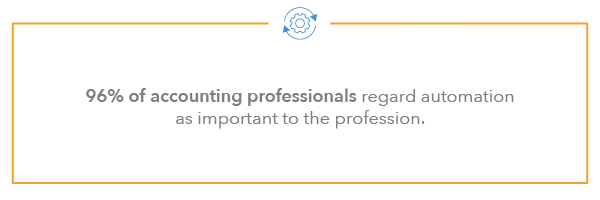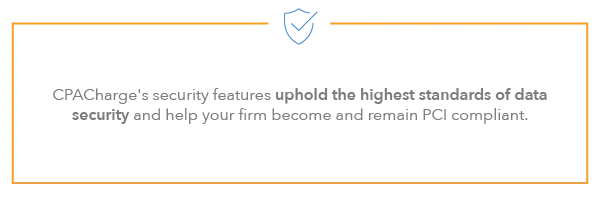Practice Management
Beyond the Ledger: 4 Trends Shaping the Future of Accounting

The accounting profession is rapidly evolving, driven by technological advancements and changing client demands. A few key trends are fueling this transformation, such as the rise of AI and automation and innovative billing models. In this article, we'll explore these accounting trends, reveal how they're changing the industry, and share what you can do to stay ahead.
What Is the Future Outlook of the Accounting Profession?
The future for the accounting profession is promising, with the U.S. Bureau of Labor Statistics projecting a 4% job growth rate from 2022 to 2032. This outpaces the average growth rate for all occupations, which is 3%.
Furthermore, career optimism resonates among students in the field, with senior executives providing new growth opportunities. According to the EY Accounting Professional of the Future survey, 79% of students express confidence in the long-term career benefits offered by accounting. Unfortunately, more than half of non-accounting students reported that the cost of the 150-hour obligation was the main reason for not pursuing an accounting profession.
In response to the growing demand for financial support, 87% of executives support establishing new routes to becoming a CPA. Ernst & Young, for example, introduced the EY Career Path Accelerator. This educational program is a more affordable alternative to getting CPA licensure, encouraging more students to join the accounting field.

In light of these insights, let's delve into the trends shaping the future of accounting and discover strategies for maintaining a competitive edge.
4 Accounting Trends That are Changing the Profession
The four key accounting industry trends are:
- Value-Based Pricing
- Artificial Intelligence (AI)
- Automation
- Cybersecurity
We'll explore each trend in detail to uncover its impact on the profession and what you can do to leverage it.
1. Value-Based Pricing
Value-based pricing is gaining traction as firms seek alternative billing methods beyond traditional hourly rates. It aligns fees to the perceived value of services delivered rather than the time spent on the work. This results-focused approach serves both clients and firms, fostering transparency and incentivizing efficiency.
Here are some key benefits of value-based pricing:
- Enhanced competitiveness: By focusing on your expertise and the client's desired outcome, firms can differentiate themselves in the market. This will help you attract a more targeted pool of clients aligned to your specialty.
- Improved client satisfaction: Value-based pricing emphasizes outcomes and results—ensuring clients receive services tailored to their needs and objectives. This approach leads to a more transparent pricing model and higher client satisfaction.
- Greater profits: By accurately reflecting the value of services rendered, firms can capture the true worth of their expertise and experience, resulting in increased profitability and sustainable growth. This approach also cultivates a more future-proof cash flow strategy—providing predictability on revenue generation.

Actionable next steps:
- Evaluate whether value-based pricing aligns with your firm's objectives and client needs.
- If value-based pricing makes sense for your firm, use our e-book, "What's Next: 3 Steps for a Winning Value-Based Pricing Strategy," to learn how to implement it. You'll also discover how to communicate pricing changes with existing clients and prospects to highlight the benefits of a value-based approach.
- Educate staff on the principles and benefits of the new pricing model.
2. Artificial Intelligence (AI)
The AI boom has caused a stir among many professions, and accounting is no exception. In fact, 24% of the top-performing client advisory service (CAS) practices are already using it.

Most often, accounting firms leverage AI to streamline workflows and improve accuracy. Here are a few other examples:
- Analyzing large datasets for insights and trends
- Enhancing fraud detection and risk management
- Improving initial prospect communication and client leads through chatbots and virtual assistants
- Streamlining audit processes through AI-powered analytics
By delegating routine tasks to AI-driven systems, accounting professionals can focus their efforts on more value-driven activities, such as financial analysis, strategic planning, and client advisory services.
Actionable next steps:
- Evaluate your firm's current workflows and identify tasks that could benefit from AI.
- Research AI solutions tailored to the accounting industry and assess their compatibility with your firm's needs.
- Pilot AI projects to test their effectiveness in specific areas of your operations.
- Train staff on using AI tools and integrate them into daily workflows.
- Continuously monitor and evaluate the performance of AI systems, making adjustments as needed.
3. Automation
According to a 2023 study by ShareFile titled "Automation: Putting Accounting on the Right Path," a staggering 96% of accounting professionals regard automation as important to the profession.

Automation empowers accounting firms to streamline processes, increase efficiency, and boost productivity by automating routine tasks like data entry and invoicing. This allows firms to maximize their time and concentrate on high-value activities.
Despite the benefits, only 43% of firms use accounting software with automation capabilities. This disparity presents an opportunity for improved workflows and reduced manual labor.
Tools like CPACharge are designed to meet the unique needs of accounting professionals while leveraging the power of automation. This end-to-end accountant billing and payments software enables firms to automate invoicing and collections—reducing administrative burdens and the risk of errors. For example, reporting and deposit reconciliation are now easier with automatic daily transaction uploading between CPACharge and QuickBooks.
CPACharge can also decrease accountant burnout by reducing repetitive tasks and allowing your team to dedicate more time to strategic initiatives and client-focused activities.
Actionable Next Steps:
- Assess current workflows to identify areas for automation, such as invoicing and collections.
- Research automation tools and software solutions, focusing on functionality and integration capabilities.
- Develop an implementation plan, including timelines and resource allocation.
- Pilot automation projects to discover their effectiveness and gather feedback.
- Monitor performance and adjust processes as needed to optimize outcomes.
4. Cybersecurity
According to recent studies, "the financial services sector is 300 times more likely to be targeted by a cyberattack than any other sector. Accounting services are particularly vulnerable to cyberattacks, with one in three firms reporting a cyberthreat."
As accounting professionals, clients trust you to safeguard their sensitive information. It's your responsibility to protect their data—and your reputation.
To stay prepared for evolving cyber threats, accounting firms must adhere to cybersecurity best practices. This includes implementing measures such as multi-factor authentication, encryption, and regular staff security training to mitigate risks.
Additionally, partnering with trusted technology providers that offer solutions tailored to the accounting profession and prioritize cybersecurity is essential. CPACharge's security features uphold the highest standards of data security and help your firm become and remain PCI compliant.

Actionable Next Steps:
- Partner with trusted technology providers, like CPACharge, that prioritize cybersecurity and offer tailored solutions for the accounting profession. For example, CPACharge's Card Vault allows you to safely store your clients' payment methods within a secure, encrypted vault, providing peace of mind for your firm and clients.
- Obtain PCI compliance to abide by regulations and demonstrate your commitment to protecting sensitive client information.
- Conduct regular security training for staff to increase awareness of cybersecurity risks.
- Regularly update software and systems to patch vulnerabilities and strengthen defenses.
Prepare for the Future of Accounting with CPACharge
As the accounting profession evolves, adapting to client needs and embracing key technology is essential for success. Partnering with solutions like CPACharge ensures your firm has the tools to focus on work that matters, increase client satisfaction, and build a profitable firm.
Watch our on-demand webinar to hear key insights about accounting trends and best practices for you to thrive—now and in the future.
Interested in joining our monthly newsletter?